#it also made me feel. like. weirdly competitive.....idk it made reading feel Social instead of Solitary i can't explain it
Explore tagged Tumblr posts
Text
i will never be able to get book recs from tiktok
#i tried scrolling through booktok again today#........ i can't#i thought it was just in my head that people would be recommending colleen hoover and whatnot but no#all the popular videos are just books that don't sound appealing at all#it's giving 'i'm a first time reader' which fine but not for me#also i'm trying to stop watching booktube#this is gonna sound weird but like. i watched SO much booktube last year. and it was fun and i genuinely enjoy some channels but#it also made me feel. like. weirdly competitive.....idk it made reading feel Social instead of Solitary i can't explain it#i remember in 2022 reading felt like a Personal Thing For Me.b#but then last year it felt very. Social. i think logging my books on goodreads also did it#it just didn't feel like it was for Me anymore. and i miss that feeling
13 notes
·
View notes
Photo


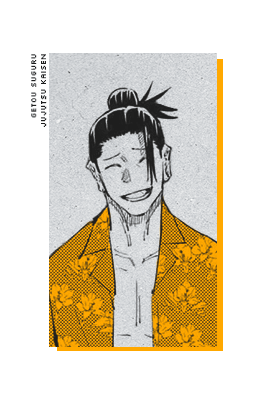
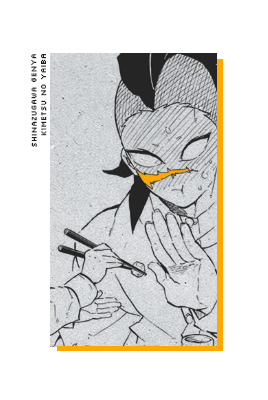
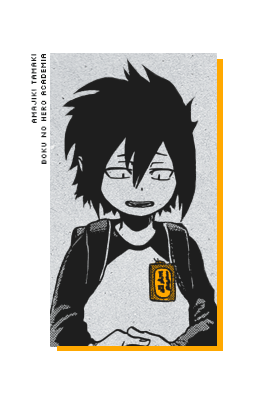



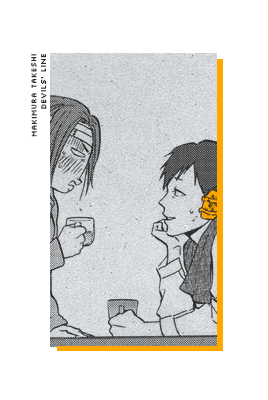
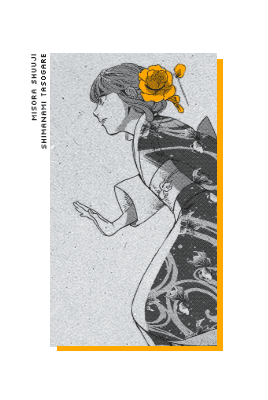
top ten tagged by @linkspooky 🍊 explanations under the cut! sorry for rambling xo → rules: name your top ten favourite characters from ten different fandoms, and then tag ten people - @osomanga @kara-suno @anonimarevolts @zeninmaki @wildbishonen @shysheeperz @tkmewthyou @kaldurlenn @joxterism @marshmallowdonutsprinkles
snufkin okay so he’s the only one not from an anime or manga but i had to put him on bc he’s the most important fictional character to me, ever. i grew up watching the moomin cartoons in the 90s and thinking about it instantly calms me down - they used to air the episodes early in the morning when it would still be dark outside: the landscapes were moody and cosy, the characters were so softly spoken and articulate... it’s just peak nostalgia. anyway, snufkin is moomin’s best friend; he returns to moominvalley every year to be with his friends during the spring and says his goodbyes to go adventure again come winter. it upsets moomin when he leaves but snufkin is adamant that quiet and solitude are important and healthy, and it’s not fair to expect him to compromise on his independence - that made a really big impact on me as a kid, especially as someone who never really had their ‘own’ space (twinsies). relationships aren’t weakened by physical distance or time, they’re about communication and understanding. that was important too. i don’t think i realised just how influential it had been until i was an adult but snufkin is an anarchist. he first shows up in the comics when moomin and sniff are talking about opening a bank - he tells them they should plant fruit trees instead. he destroys private property and rescues orphans, he refuses to participate in things that don’t bring him joy. when he’s asked where home is, he replies, “nowhere. or everywhere! it depends how you look at it” - the whole world belongs to him, and the whole world belongs to everyone else too.
yomo renji in general, i like characters that trudge along in the background and do the nitty-gritty work that supports the main story. i like people like that irl too. more than anything else, yomo is desperate to form human connections, even though he’s shackled by self-doubt and self-loathing. he just wants to positively contribute to a community, thinking he’s most useful keeping a quiet eye on people who might need protection/guidance (while still giving them space to grow and act themselves) or foraging for human corpses so that others aren’t in danger or moral anguish doing it for themselves.
bird boy is a total weapon - “the perfect ghoul” - and you’re reminded over and over again but a lot of his growth is about rejecting violence and repurposing his power as something productive that he can use to help the people around him instead of hurting people (the yang to uta’s yin). in the first few chapters, he says he kills humans (he’s a ghoul, humans are food, it’s natural) and yet he’s consistently framed as a scavenger who seeks out ‘roadkill’ [suicide victims] for sustenance, even before coming to anteiku, and implements a system so other people can do the same.
suguru getou i was originally gonna say meg bc i love him but, having just finished The Flashback Arc, i can’t stop thinking about getou and i’m beyond impressed with how akutami has managed to ground him so well, so sympathetically. getou is the sick, warped darkness to the hopeful light that gojou commands but... in an uncomfortable twist, the reverse is true, kind of.
actually, gojou is arrogant and confrontational and hyper individualistic. he’s a dissident. getou is obedient, compassionate, self-aware... he has a sense of social responsibility and passionately believes that his skills should be used to protect those who can’t protect themselves - non-jujutsu sorcerers - and all of the suffering he endures as a result is worth that. idk if others are reading his downfall differently but, from where i’m standing, that overwhelming responsibility never goes away, he doesn’t give up on it - he just starts to view the social landscape differently and begins to see how jujutsu sorcerers are vilified and mistreated in spite of all the good that they do. the ‘weak’ aren’t really weak when they’re able to organise and assert collective power over a minority, and so his sympathies shift.
the nail in the coffin for getou is learning that the hurt and pain could be eradicted from the world by cutting the head of the proverbial snake: non-jujutsu users generate cursed energy, so get rid of non-jujutsu users and cursed energy won’t be generated. it’s all horribly, weirdly rooted in good intentions that weigh him down and misdirect him. shinazugawa genya i feel like the bond that slowly starts to develop betwen tanjirou, and zenitsu and inosuke (in particular) is nicely foiled by genya’s lonely journey towards becoming a pillar. after losing almost all of his family and having sanemi walk away, genya is angry, antisocial, rude, violent, evasive...
he’s characterised as competitive, as if he hates his peers and wants to leave them in the dust as an act of self-satisfaction, a power fantasy or whenever, but this is a deliberate misdirection to cover for the fact that he’s scrambling to be a pillar so that he can reconnect with his brother and prove to him that he can protect himself; that sanemi doesn’t need to shoulder everything alone like he used to. his entire goal is an act of apology.
and in a story where so many characters are able to hone these exceptional skills, genya is uniquely disadvantaged as the only one who can’t master breathing techniques. rather than having a hero moment and powering up, his need to reconnect with sanemi is so strong that he essentially decides to compromise his humanity and become a kind of monster by ingesting the demons he’s pledged to annihilate. amajiki tamaki i wish i had a a longer explanation for this one but it’s actually super simple: tamaki is a really, really, really good portrayal of a person burdened with severe anxiety. the way he physically carries himself, the way he hides his face, his manner of speaking, his dependency on his mirio, how he interprets compliments as trickery, how he needs to be pushed and pushed and pushed before he’s finally able to release his potential... every single scene with tamaki felt deeply personal when i was reading bnha and i knew exactly what he was supposed to be feeling. shinmon benimaru sometimes good, nice people don’t fit a little friendly mould and i like that benimaru is hostile and rough and antisocial, even with people he cares about. he doesn’t expect anything of people, he doesn’t want them interfering with him, and he wants to help and support them all the same because he believes in community. he’s completely oppositional to the special fire force because he thinks it’s a tool to pursue an ideology rather than to protect people, which is why it’s so important when the eighth are finally able to win his approval - they become the only company the seventh consider allies, and it’s proof that their objectives are righteous. despite his reputation as... kind of a nuisance, his skill is acknowledged by everyone and he’s universally regarded as the strongest fire soldier there is. in spite of his antisocial attitude, he agrees that it’s important to share that with younger fire soldiers - he’s incredibly patient and understanding with them, helps them to individually adapt. the way he (and others in company seven) operate in contrast to the other companies when fighting infernals is really cool to me for two reasons: (1) it provides a commentary on how cultures and traditions often struggle to survive when they’re systematically (forcefully) replaced through power and wealth - although the subtext is a little troubling because it’s unclear whether ōkubo is conflating multiculturalism with globalisation which, uh, big nope; and (2) philosophically speaking, the approach to death is interesting. where the other companies essentially perform last rites and offer absolution to the deceased, benimaru personally takes responsibility - at the request of the people in his district - for sending them off in huge public display, kind of like a festival intending to celebrate their life. i think it speaks to how profoundly he values life. akihiko kaji i liked akihiko from the beginning because he’s stoic and introspective and also excitable and dumb. he’s a people watcher and waits for opportunities to softly guide uenoyama and mafuyu when they’re quietly crying out for help but doesn’t interfere any more than he thinks is necessary because he knows they can make their own way to where they need to go. i liked akihiko even more when he got really fucking messy. his relationship with ugetsu is sweet and it’s incredibly ugly and unhealthy because they both fail utterly to communicate with one another - they’re both to blame for avoiding and hurting each other, and i think that’s a really normal issue that people find difficult to overcome. i’m super interested (and really nervous) to see how his relationship with haruki develops. he’s done some horrible things to haruki and i want him to be accountable for those things and have them affect their relationship in a realistic way.
tanigaki genjirou one thing i really, really love about golden kamuy is the way noda satoru incorporates the importance of minority cultures into the story, and tanigaki’s apparent abandonment of his matagi heritage is really beautifully written. matagi hunting traditions shaped his life as a young man, it’s how he was able to really assimilate to the people around him and form relationships and - without getting too spoilery - he divorces himself from it all when he’s overcome by grief and hatches a plan for revenge against the person responsible. so, by allowing himself to surrender to negative feelings and thoughts instead of seeking support and learning to heal from what happened, he becomes a total shadow of himself.
makimura takeshi i know i’ve gushed about it before but i can’t properly explain just how incredible it felt seeing an asexual character in manga dialogue about being asexual, and devils’ line does it twice. the reason i’m so attached to makimura in particular is because he doesn’t seem to have fully figured it out - and he’s kinda... comfortable with that. he wants to be with someone and he wants to be monogamous but he can’t understand why he doesn’t feel sexual desire towards her; he knows his feelings aren’t platonic but doesn’t know whether they can really be called romantic either.
not to go dark mode but i very vividly remember just how lonely and horrifying it was battling with those uncertainties when i was a teenager, thinking i was broken because i didn’t have Normal Human Feelings and needed to be fixed. i was so worried about it that i thought about all the boys i knew, picked the one i thought was the nicest and actively tried to develop a crush on him. it was dumb as fuck but, ten years later, i realise it was really desperate and sad too. i forced myself to have ~my first kiss~ (it was horrible) because i felt like i was getting left behind and i think i would’ve put myself in worse situations as i got older if i hadn’t suffered with such bad social anxiety.
i hadn’t really thought too much about a lot of this stuff for yeaaars but it all came flooding back when i was reading devils’ line. it was bittersweet bc i was remembering all of those shitty feelings but also watching this character grapple with those same questions and go: i don’t know yet and that’s not weird, let’s just grow with it. i still don’t totally know whether i’m ace or aro or bi, or whatever, but i’m trying to be okay with just... not knowing.
misora shuuji anyway, devils’ line isn’t actually a manga with a specific focus on sexuality and gender but shimanami tasogare is and all of the characters are written beautifully. if you haven’t read it yet... then why haven’t you read it yet? misora is only about twelve years old and watching them battle with their growing pains is really compelling - they’re closeted but, through the lounge, they have somewhere to explore their gender and all the questions they have about it. they’re amab and present as traditionally feminine wrt clothes, wigs, makeup, etc. but can’t quite tell if they see themselves as a girl, a boy or non-binary.
with the onset of puberty and anxieties about physical changes to their body, misora’s story puts a lot of emphasis on the pressure they face to just ‘make up their mind’ about something that’s actually incredibly complex and doesn’t have any easy answers. they snap and shout and get upset, especially when tasuku (the protag) tries to push them into a corner because he wants a concrete label or identity he can attach to misora, even though space is exactly what misora needs.
#jujutsu kaisen#given#kimetsu no yaiba#boku no hero academia#enen no shouboutai#tokyo ghoul#shimanami tasogare#devils' line#golden kamuy#moomins#mine*edit
365 notes
·
View notes